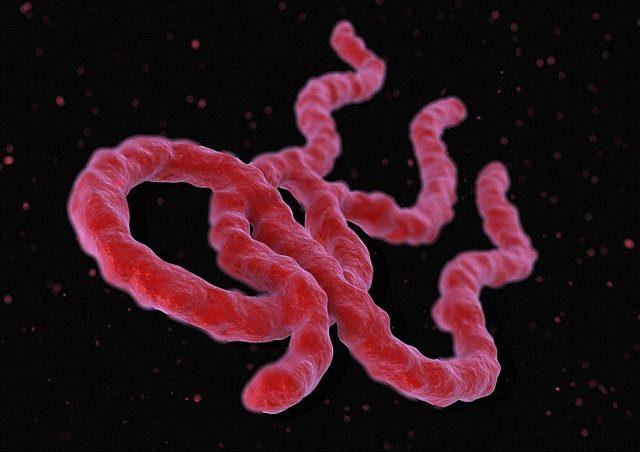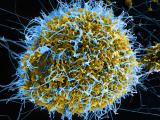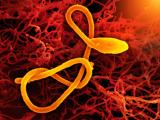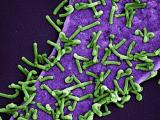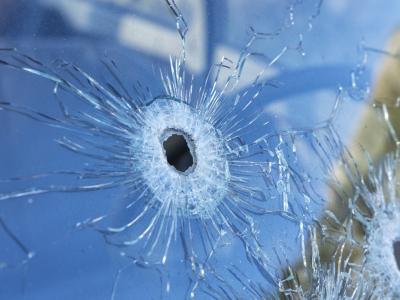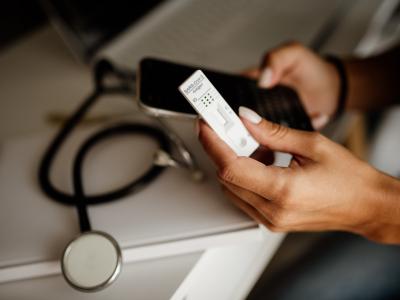The condition of a health worker who was evacuated from Sierra Leone after contracting an Ebola infection has worsened, with the patient now in critical condition at the National Institutes of Health (NIH) Clinical Center in Bethesda, Md., and 10 of the patient's colleagues who came to his or her aid due back in the United States for evaluation and monitoring.
All of the clinicians were working with Partners In Health (PIH) Ebola response in Sierra Leone, the group said in a Mar 14 press release. The sick health worker was admitted to the special biocontainment unit at the NIH Clinical Center on Mar 13.
The US Centers for Disease Control and Prevention (CDC) said that as a result of its investigation into the infection and potential exposures, it and the State Department are facilitating the return of additional Americans who were exposed to the index patient or had exposures similar to those that led to his or her infection.
In a Mar 14 statement the CDC said the potentially exposed Americans will be brought to the United States by noncommercial air transport and will be near one of three high-containment units that have already treated Ebola patients: the University of Nebraska Medical Center (UNMC) in Omaha, the NIH Clinical Center, and Emory University Hospital in Atlanta. PIH said the clinicians will be isolated near designated US Ebola treatment facilities for rapid testing and treatment if they start showing symptoms and that they have agreed to be monitored and to voluntarily self-isolate during the rest of the incubation period, in accordance with CDC guidance.
Nebraska Medicine, the umbrella organization over UNMC, said today that one of the American health workers has arrived for monitoring and care, if needed. It said the individual who was admitted started having symptoms last night during monitoring and was admitted to the biocontainment unit out of an abundance of caution.
Phil Smith, MD, the biocontainment unit's medical director, said in a statement that the person hasn't tested positive for the Ebola virus. "However, because of a change in symptoms, we decided the most prudent course of action was to bring the individual to the Biocontainment Unit, where we can better monitor symptoms and safely perform testing," he stated, adding that some of the symptoms prompting the move resolved this morning.
The hospital said it learned that one more person who was part of the initial exposure in Sierra Leone will also be coming to UNMC for monitoring later today.
PIH said it is working with the CDC, the World Health Organization (WHO), and Sierra Leone's health ministry to thoroughly assess safety and clinical protocols to ensure that it provides the best care for patients and a safe workplace for staff.
UK evacuates seventh health worker
In a related development, another British health worker who may have been exposed to Ebola in Sierra Leone arrived in the United Kingdom for evaluation today, Public Health England (PHE) said in a statement. It said the individual worked in the same facility as the US health worker detailed above.
PHE said the health worker who arrived today and was asymptomatic, was transferred to the Royal Victoria Infirmary in Newcastle for assessment. The individual has already been discharged and will be monitored for the rest of the 21-day incubation in private accommodations, according to PHE protocols.
The health worker is the seventh to be brought back to the United Kingdom from Sierra Leone over the past few days. On Mar 12, a UK military health worker sickened with Ebola in Sierra Leone was evacuated to the UK and is hospitalized at Royal Free Hospital in London. Four military health worker contacts were brought back for monitoring, and a sixth individual was brought back after a needlestick injury and is at the same hospital for assessment.
So far no other Ebola infections have been detected, and the four military health worker contacts have all been discharged to home monitoring, the PHE said.
Outbreak numbers, death predictors
The World Health Organization (WHO) said today that the number of confirmed, probable, or suspected Ebola infections in the three hardest-hit countries has edged up to 24,597, with the number of deaths at 10,114. The totals include data from Guinea and Sierra Leone as of Mar 14 and from Liberia as of Mar 12. The numbers reflect an overall increase of 88 confirmed, probable, or suspected infections since the WHO's update on Mar 13 and an increase of 48 fatalities.
In clinical developments, clinicians from Guinea and France who analyzed predictors of death from Ebola found that myalgia, hemorrhage, and difficulty breathing were independently associated with dying from the disease. The team published its finding in a Mar 13 online edition of Clinical Infectious Diseases.
They based their findings on observations of 89 lab-confirmed Ebola case-patients treated at the Donka Hospital Ebola treatment center in Conakry between March and August 2014. Doctors Without Borders (MSF) is involved with the treatment center, which is the reference center for clinical management of Ebola in Conakry.
Thirty-nine patients died, for a crude mortality rate of 43.8%, the team found.
In an accompanying commentary, Emil Lesho, DO, an infectious disease specialist at Walter Reed Army Institute of Research, wrote that critics might dismiss the report because of nonspecific terminology, such as "difficulty breathing" and "hemorrhage." However, he added that the report on clinical predictors of death is commendable for several reasons, including the outbreak setting environment, rare chances, or longitudinal observation, and the fact that all of the deaths were lab-confirmed.
He said the findings could be useful in settings when rapid lab-free methods are needed to triage people, such as in a more devastating outbreak situation.
See also:
Mar 14 PIH press release
Mar 14 CDC update
Mar 16 Nebraska Medicine statement
Mar 16 PHE statement
Mar 16 WHO Ebola update
Mar 13 Clin Infect Dis abstract
Mar 13 Clin Infect Dis commentary
